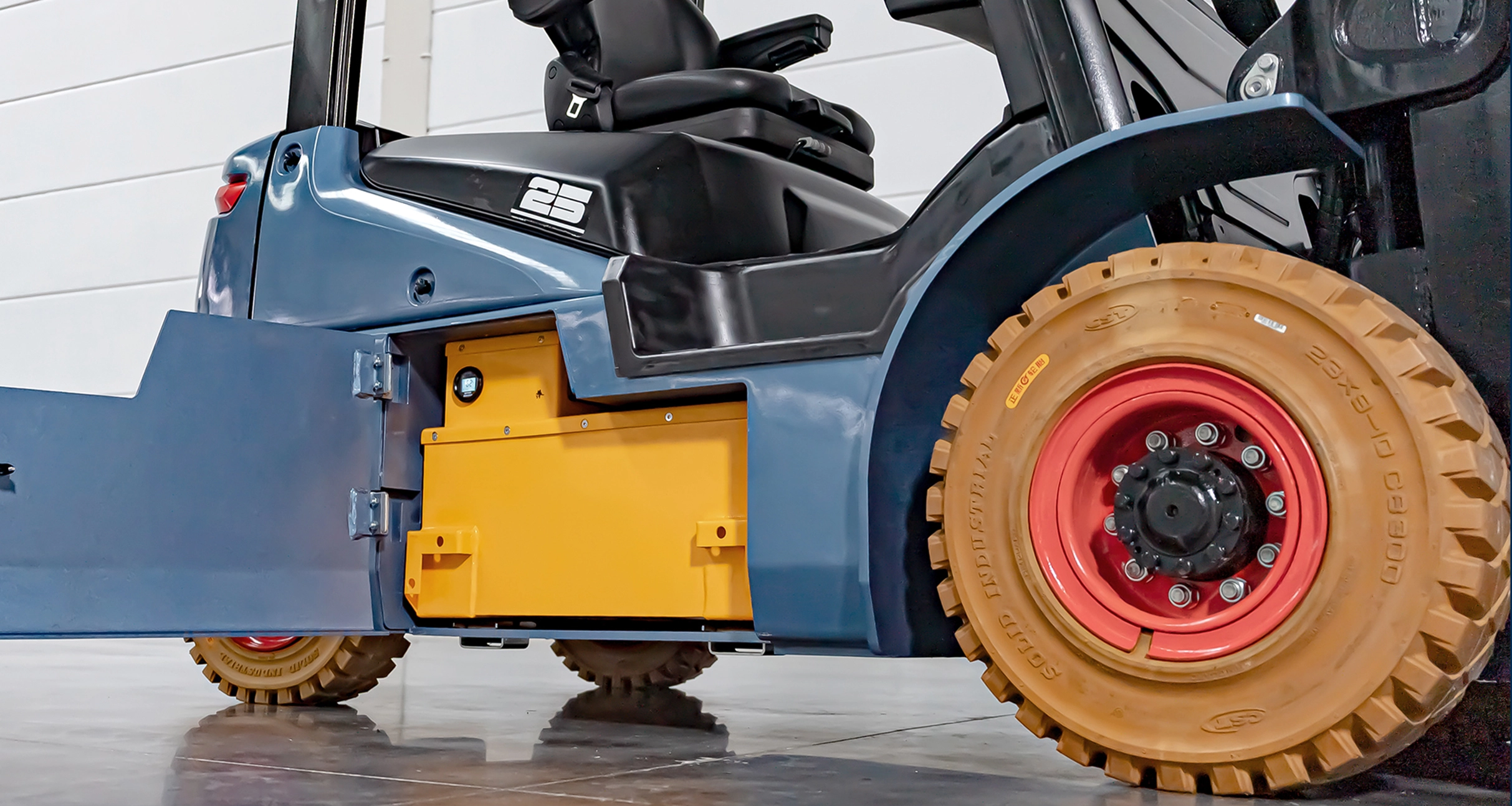AUGUST 21, 2024
Lithium Forklift Maintenance Guide: Key Steps to Ensure Performance and Safety

With the increasing popularity of electric forklifts in modern logistics and warehouse management, lithium batteries have become more favored due to their long life, fast charging, and low maintenance requirements. This article provides key steps for the maintenance of lithium forklifts to ensure their optimal performance and long-term service life.
The maintenance and care of lithium forklifts are crucial; here are some basic steps for their upkeep:
1. Proper Installation: Ensure the battery is correctly installed to prevent damage, inefficiency, and potential safety risks. Check that battery connections are clean, secure, and properly tightened.
2. Regular Temperature Monitoring: Lithium batteries are sensitive to temperature changes. High-temperature operations can affect battery performance, accelerate degradation, and pose safety risks. Ensure the working environment is well-ventilated and frequently monitor temperatures, especially during hot seasons or in high-temperature areas.
3. Regular Inspections: Although lithium batteries require less maintenance than lead-acid batteries, regular visual inspections are still essential. Check for visible damage, leaks, swelling, or loose connections. If any of these issues are found, remove the battery from service immediately and consult with professionals.
4. Keep Batteries Clean: Keeping batteries clean helps ensure optimal connectivity and extends their service life. Avoid the accumulation of dirt, grease, and debris on battery terminals. Regularly clean the terminals with a soft, lint-free cloth and an appropriate contact cleaner, and inspect the battery casing to remove any contaminants.
5. Correct Charging: For lithium batteries, proper charging is key to maximizing their life and efficiency. Always use a charger that meets the battery specifications. Avoid overcharging and completely discharging the battery. Most lithium batteries have a built-in Battery Management System (BMS) that prevents overcharging and other potential issues; however, following the manufacturer's guidelines is crucial to prevent any problems.
6. Avoid Overloading Forklifts: Overloading a forklift can put excessive pressure on the battery, affecting its performance and life. Be familiar with the load capacity of the forklift and never exceed the specified weight. This will help extend the life of the lithium battery and maintain the overall efficiency of the forklift.
7. Proper Storage: When not in use, store lithium batteries in a cool, dry, and well-ventilated area, away from direct sunlight or extreme temperatures. Improper storage can significantly reduce the life and performance of lithium batteries. If planning to store the battery for an extended period, disconnect the connections to prevent self-discharge issues.
8. Safety Awareness: During charging, ensure that the battery is charged in a relaxed and well-ventilated area. Additionally, consider opportunity charging (short, regular charging cycles during breaks) – this helps disperse heat generation and can extend battery life.
By following these maintenance tips, you can get the most out of your investment in lithium forklifts. Regular inspections, proper charging practices, and efficient energy management will ensure that your batteries provide optimal performance, extend their service life, and reduce overall ownership costs.













 English
English 


